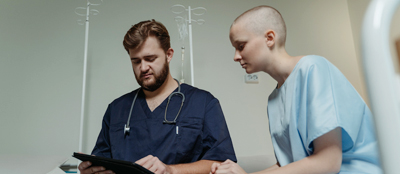

Colorectal Cancer (cancers of the colon and rectum) is the second leading causes of death due to cancer for men and women (combined) in the United States, while it is also considered as one of the most common, and yet preventable cancers. In fact, Screening (Screening Tests) is currently slowing the death rate for Colorectal Cancer to a great extent.
Colon or colorectal cancer is cancer that affects the large intestine, medically known as Colon or Rectum, which is the end of the colon. Other types of cancer can also affect the colon that include Lymphoma, Carcinoid tumors, Melanoma and Sarcoma. However, this post primarily highlights matters relating to Colon Carcinoma.
To be precise, medical science has so far been unable to find out what actually causes colon or rectal cancers. Nevertheless, it is assumed that deficiency in genes that protects against attack of cancer is mostly responsible for causing polyp cells to incessantly change and thus become cancerous. While many believe that these are caused by inherited genetic defects (such patients having family history of colorectal cancer), others have found that most of genetic mutations involved in colon cancers appear to arise spontaneously (without being inherited). It is also believed that environmental and/or other factors often trigger genetic changes in the intestine, thus causing cancer.
It is heartening to know that due to screening, the incidence rates have been lowering since the last 20 years. As more people are getting screened at age 50+, they are having polyps removed before these turn cancerous. At the same time, treatment for these cancers have also become advanced, while there are more than a million colorectal survivors in the United States.
However, colon and rectal cancers can now be detected early, using screening test when precancerous polyps and colorectal cancers are located and removed. Incidentally, the American Cancer Society (ACS), the U.S. Preventing Services Task Force (USPSTF), and the American College of Gastroenterology (ACG) have made recommendations concerning screening for colorectal cancer that are outlined below which include several options and schedules.
Diagnosis of colorectal cancer is achieved through several types of tests that are outlined below.
Biopsy – While colonoscopy is carried out, a tissue sample is removed and sent to a laboratory for testing purposes. It is considered by many as the best way to diagnose colorectal cancer.
Blood Tests – Blood tests are conducted primarily for checking anemia. The incidence of anemia sans any other positive cause will call for detailed evaluation of the gastrointestinal tract for probable cancer. Blood tests are also conducted to check for specific tumor markers, substances that are released into the blood from cancer cells. Tumor markers include carcinoembryonic antigen (CEA) and CA 19-9. These tests help the attending physician in terms of recurrences of colon cancer after treatment.
Imaging Tests – Several types of imaging tests routinely help detection of cancer and/or how far the cancer has spread. These comprise Ultrasound, Chest x-ray, MRI (Magnetic Resonance Imaging), PET (Positron Emission Tomography scan and CT (Computed Tomography) scan.
Treatment for colorectal cancer constitutes Surgery, Chemotherapy and Radiation; sometimes a combination of all.
Patients in high-risk groups who have changes that are identified as precancerous during colonoscopy will likely have their attending physicians converse with them about the possibility of a prophylactic or preventive colectomy (removal of the colon).
When first diagnosed with cancer, patients become keen to know about their prognosis. In other words, they want to know whether their cancer is curable or not, as also the survival rate. Since doctors cannot predict the future, they may provide statistics that could be confusing and frightening. So, it is best to rely on the doctor and go through the diagnostic procedures and treatment process calmly and quietly.

As a leading gastroenterologist in Kolkata, DR. V.K. Rai understands that liver enzymes pl
read more
Middle aged Maureen visiting her ailing daughter in New Jersey wailed in the middle of t
read more
Overview: Pain is the most common symptom of gallbladder problems, and this sign is mostl
read more